Search the Omeda Knowledge Base
Omeda Client Support Portal – User Guide
Welcome to the Omeda Client Support Portal User Manual. Read on to learn how to use the new Portal interface. Think of it as your one-stop access to all our support options. Request service, report bugs, add products, ask a question and more … all from one place.
Let’s get started!
Quick Start Guide
Hit the ground running with our Quick Start Guide PDF and download a copy for future reference. Download Quick Start Guide
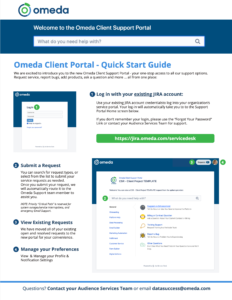
Support Portal Ticket Type Guide
There are a lot of different ticket types in our support portal. Take a look at our Ticket Type Guide to find which best meets your support needs.
Overview Video
Watch this video for a quick overview of the Omeda Client Service Portal.
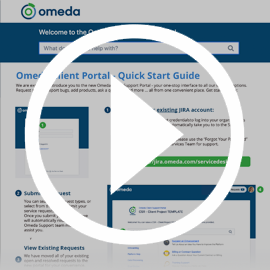
Critical Support Requests
Support is available during Omeda Business Hours from 7:30am to 5:30pm CST, Monday through Friday.
Emergency assistance for urgent requests, e.g. platform outages, non-temporary service interruption, critical Email issues that require immediate action, is available after hours by emailing criticalsupport@omeda.com, or by submitting a Service Desk request with the priority “Critical Path”. The critical support team will respond back to you as quickly as possible.
Please include the following information in all requests for support when you are reporting a problem or abnormality to ensure the quickest possible resolution/response, including :
- URL’s, ID’s or other issue-specific information to clarify were the problem occurred
- Screenshots of Issue or error messages
- Problem/question
- If problem, what are you trying to do?
- What happened immediately before ‘the problem’?
- Include screenshots, if applicable.
NOTE: Priority “Critical Path” or “Escalate” is reserved for system outages/service interruptions, and emergency Email Support. For requests requiring prioritization, please assign a due date were applicable, select Priority “High”.
Features
Portal Log-In Screen
1. Log in with your existing JIRA account:
Use your existing JIRA account credentials to log into your organization’s service portal. Your log-in will automatically take you to to the Support Portal Home screen below.
If you don’t remember your login, please use the “Forgot Your Password” Link.
If you do not have an account, please contact your Audience Services Manager for support.
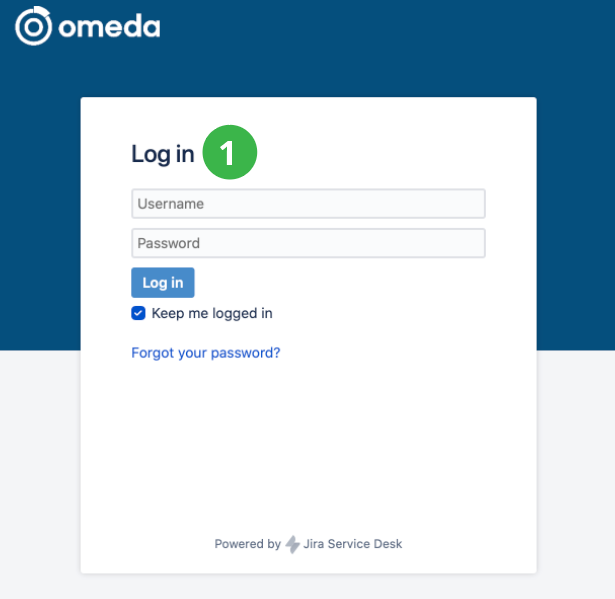
Portal Home Screen
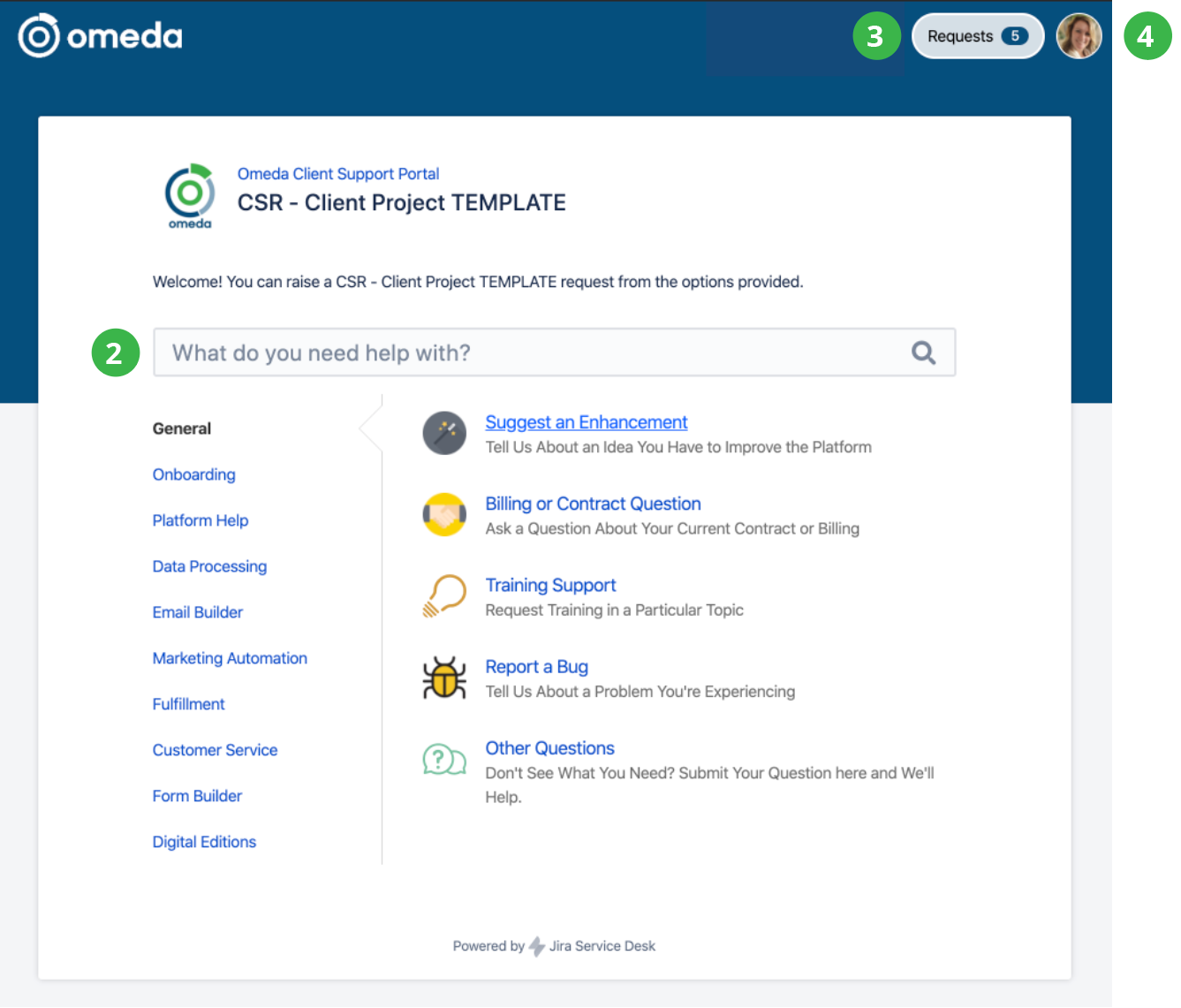
2. Search for a Request Type
Use the Search Bar to find the right request type, or use the categories in the left bar to navigate to the desired category and request type.
3. View your existing Requests
Click on the “Requests” button to see your active requests, or search for closed tickets.
The number in the blue bubble indicates the number of active (open) requests you are participating in.
4. View or Edit your Profile Preferences
Click on the Avatar in the top right corner to view or edit your profile preferences, including
Issue List View
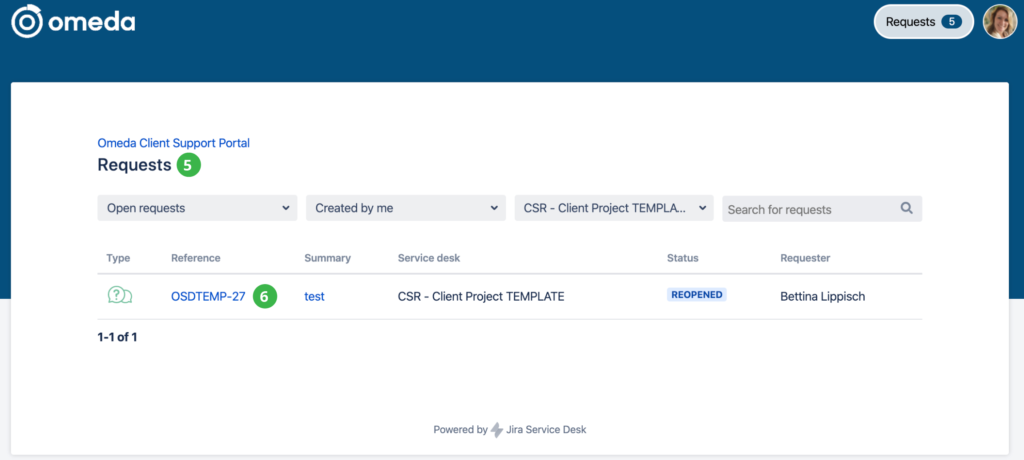
5. Your Request
Once you selected the “Request” button on the top right next to your profile icon, you will see a list of all requests you are involved with. The list defaults to “Open requests”, but you can filter by the other options listed below.
6. Issue Detail View & Features
Select the issue to view details, add comments, share with other’s in your organization, and change issue status.
NOTE: Searching for Issues Migrated from previous Jira Version
If you had existing issues (Open or Closed) in the previous version of your Jira project, please note the following when searching for issues that were migrated, due to some changes in functionality.
- Watchers are now called Participants, and you can see any migrated issues where you were a watcher on by simply searching via the Requests dropdown, selecting the option with your “Company Name”
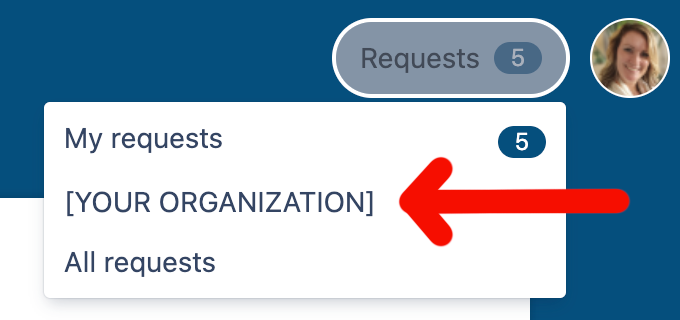 or by selecting the Option “Where I am a participant”:
or by selecting the Option “Where I am a participant”:
- Request – Search Defaults: Note that the default settings for the Search are “Open requests” and “Created by me”:
 Therefore, please make sure you are selecting the appropriate filter options (e.g. Closed requests, Created by anyone), should you not see your existing requests.
Therefore, please make sure you are selecting the appropriate filter options (e.g. Closed requests, Created by anyone), should you not see your existing requests. - Ticket # Order: Note that due to the migration process, tickets might not have migrated in sequence. Moving forward, all newly created tickets in the Service Portal will be numbered in the sequence created/
Issue List View – Request Filters
Create, Save & Share Request Filters
You can create your own filters for frequently access request queries. To create your own queries simply go to:
“Requests >> Request Filters”
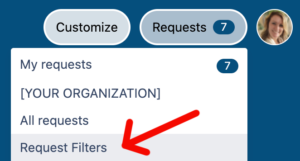
Build your Filter as desired from the options provided:
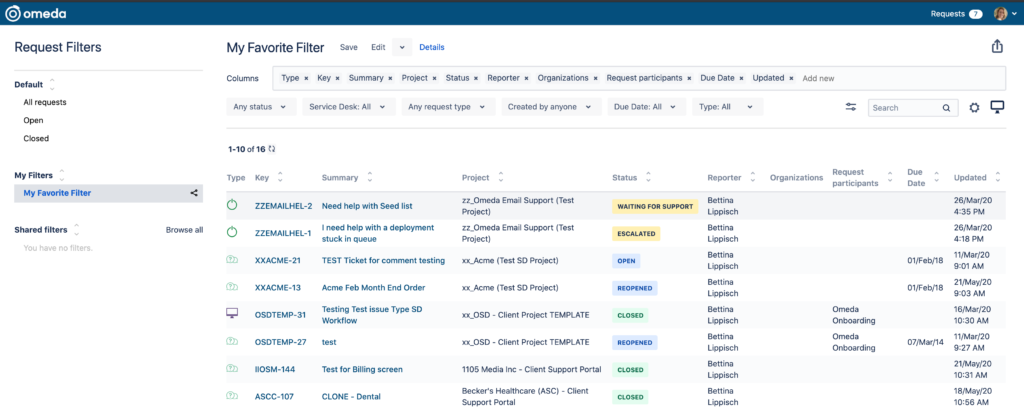
Saving your filter will bring the Save menu where you can select to share your filter with other users or your entire organization, as well as add it to the “Requests Dropdown” for easy access.
You can also export your issues from a filter using the Export icon in the top right.
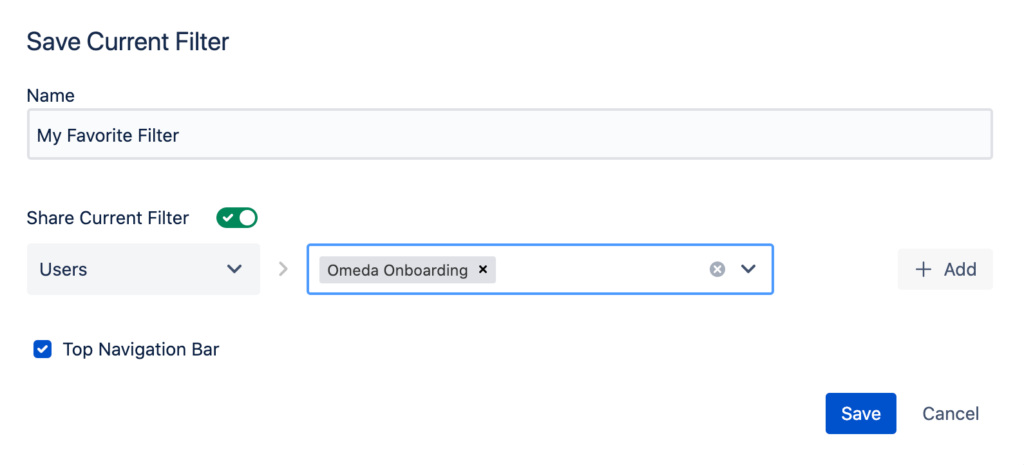
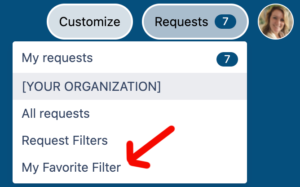
Issue Detail View & Edit an Issue
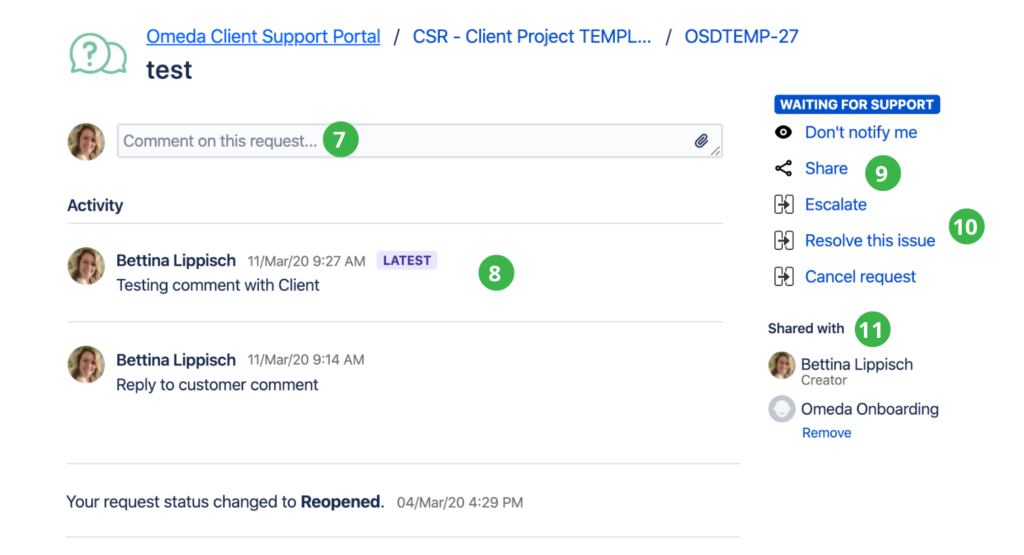
7. Comments
You can leave a comment on any issue by clicking into the comment bar. This will also bring up the option to attach files to the comment.
8. Ticket Activity
You can view the comment and ticket transition history in this section. The latest comment is marked for your convenience.
9. Share
Share a comment with other Service Portal users in your organization.
NOTE: This feature replaces the “Watcher” feature in the previous interface.
10. Change Status / Transition an Issue
You can change the Ticket Status in this section: Here are the ticket- and transition status types available:
10.1 Ticket Status Types (Click to Expand)
Waiting for Support
Your Ticket was received and is awaiting an initial answer from the support team.
Waiting for Customer
Your Ticket was received and is awaiting an answer from the support team.
Escalated
Your Ticket was either submitted as priority “Critical Path” or escalated by you or another user.
NOTE: Priority “Critical Path” or “Escalate” is reserved for system outages/service interruptions, and emergency Email Support. For requests requiring prioritization, please assign a due date were applicable, select Priority “High”.
In Progress (Internal Status)
Your Ticket is actively being worked on.
Pending (Internal Status)
The ticket is on hold or pending a dependency that has top be resolved first.
Cancelled
The ticket has been cancelled by the requester or support because it no longer was applicable.
Resolved
The ticket has been Resolved by Support and is awaiting confirmation from you to confirm and close.
Closed
The ticket has been confirmed as resolved and closed by requester.
10.2 Ticket Actions (Click to Expand)
Create Issue
Creates a New Issue via the Customer Portal Interface
Escalate
Escalates a ticket into the Critical Path Status
NOTE: Priority “Critical Path” or “Escalate” is reserved for system outages/service interruptions, and emergency Email Support. For requests requiring prioritization, please assign a due date were applicable, select Priority “High”.
Respond to Customer (Internal)
Moves Ticket to “Waiting on Customer Status“
Cancel Request
Cancels a request
Resolve the Issue (Internal)
Moves Ticket to “Resolved” for Customer to confirm and close the issue.
Close
Requester closes the ticket after it is resolved.
Reopened
Reopens a previously closed request.
NOTE: Please open a new request for recurring issues that are a separate occurrence.
11. View Participants
View who is participating on the issue.
Create a Request Screen
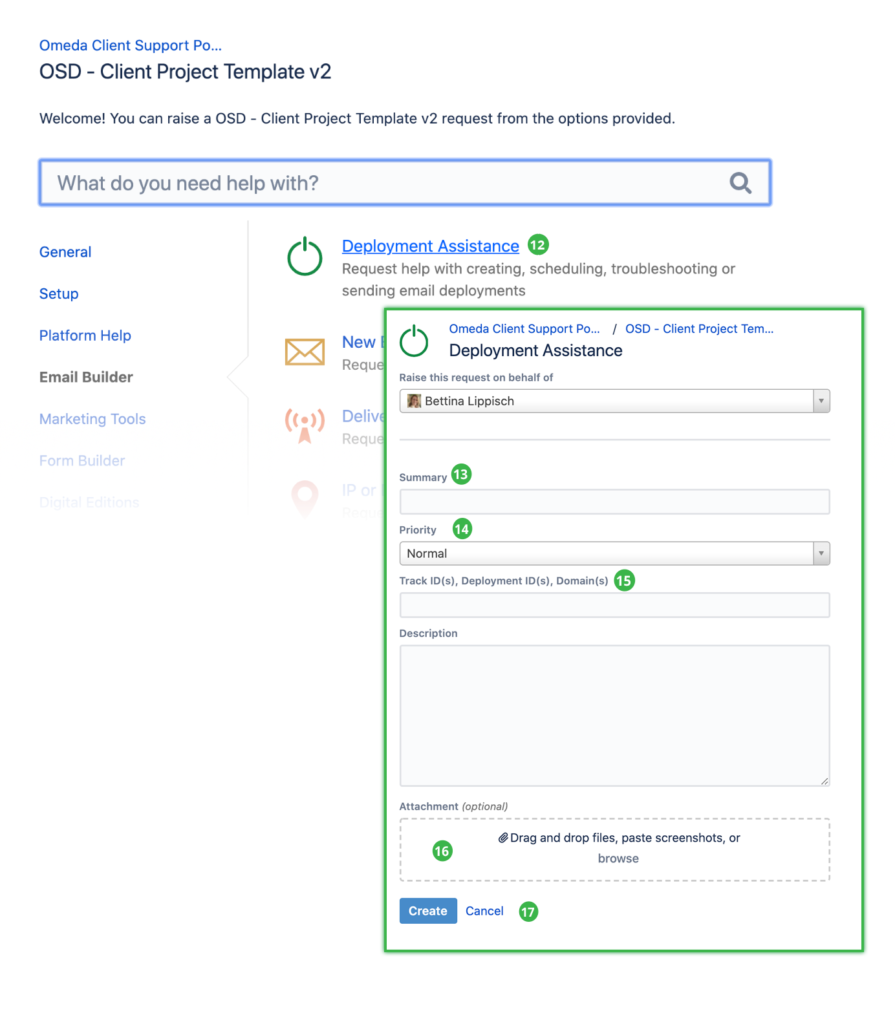
12. Select the desired Request Type
Select the Request Type to bring up the Request Form
13. Summary
Please give your request a descriptive name so you can easily find and identify the request.
Good practice is to include the brand abbreviation, a descriptive summary, or another indicator that lets you easily search for or distinct one request from another.
14. Priority
Please select the priority for your request. Please indicate due dates as applicable and where appropriate, using date fields where available, or add a date into the ticket description field, instead of using priorities to indicate urgency.
The Omeda support team will be able to support you more effectively having a due date rather than priority, so please keep tickets in normal priority unless it is an emergency or urgent request with a faster than normal turn-around time.
NOTE: Priority “Critical Path” or “Escalate” is reserved for system outages/service interruptions, and emergency Email Support. For requests requiring prioritization, please assign a due date were applicable, select Priority “High”.
15. Description and other Ticket-Type based Fields
Each request type will have a “Description” field to explain your request in more details. Please provide us many details as possible so we can assist you quickly with the right information at hand.
Some ticket types also have additional fields, e.g. Deployment ID, Due Dates, Links to Queries, etc., depending on the request types.
Some fields are optional, others are required, depending on the type of request you are submitting.
16. Attachments
You may attach screenshots, files or other documents that are required to solve your request.
Attachment Size Limits:
The maximum attachment size is 20MB. Please break down larger files into individual files if necessary.
17. Submit Your Ticket
Select “Create” to submit your ticket.
Manage Your Profile
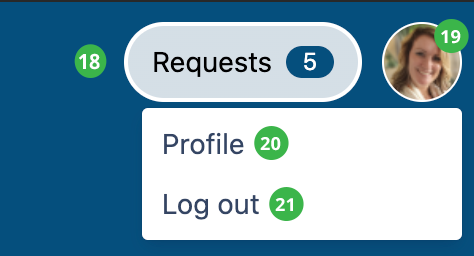
18. My Requests
Select the Request Type to bring up the Request Form.
19. Profile Menu
Click the Avatar to show the Profile menu.
20. My Profile
Select to view/edit your profile.
21. Log Out
Log out of the Customer Portal.
Your Profile Page
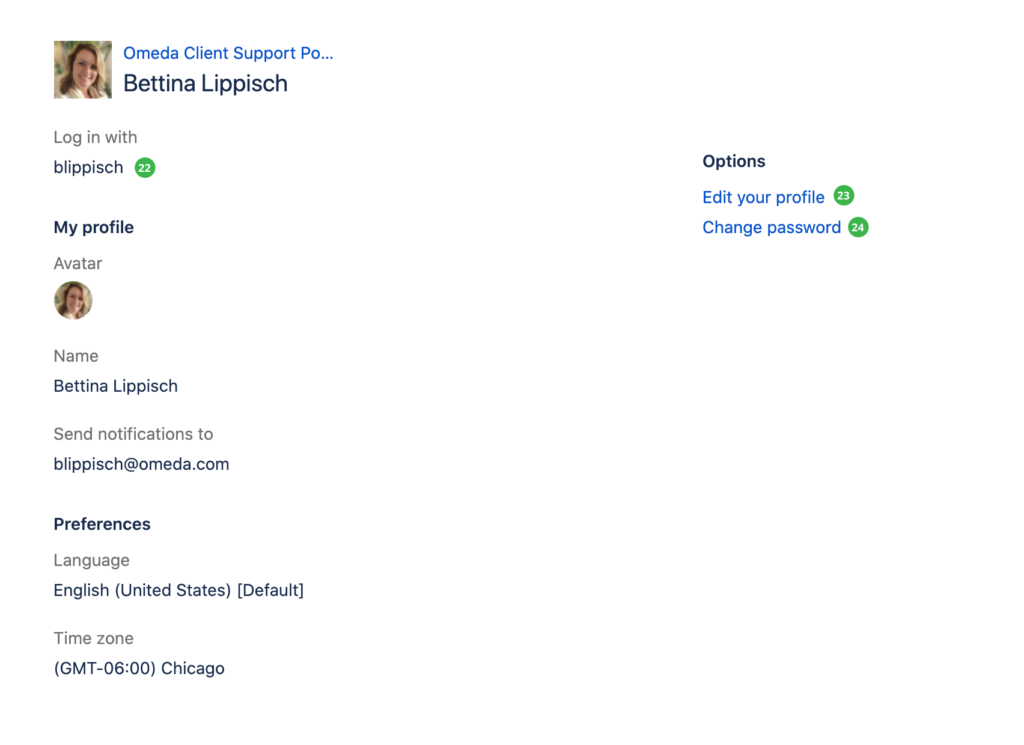
22. Your Login ID
This is your login ID used to access your Omeda Support Portal account
23. Edit Your Profile
Click this link to edit your profile settings, including name, profile photo, notification Email address & timezone.
24. Change Password
Change your password using this link.
Edit Your Profile
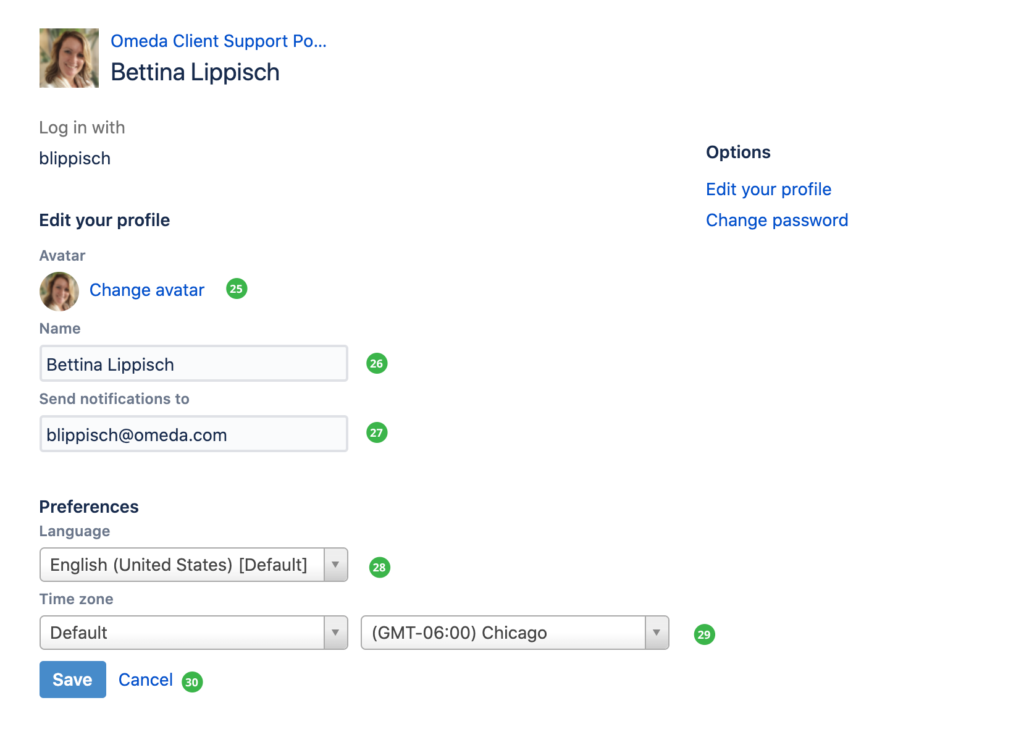
25. Change your Profile Picture
You can add or change your profile picture.
26. Edit Your Display Name
You can edit the name that will be visible to others in the Omeda Service Desk, including your organization’s users and the Omeda team.
27. Update Notification Email
Update the Email Address for your Customer Portal notifications. Please note that this email will also be used to send reset password requests should you need to reset your password from the login screen.
28. Language Preference
Set your Language preference. The default is English (United States).
29. Time zone Preference
Set your time zone preference. The default is (GMT-06:00) Chicago.
30. Save Preference
Save your preferences before exiting the page.
Do you have additional Questions?
Additional Question about the Omeda Customer Support Portal? Contact your Audience Manager, or email clientsuccess@omeda.com.